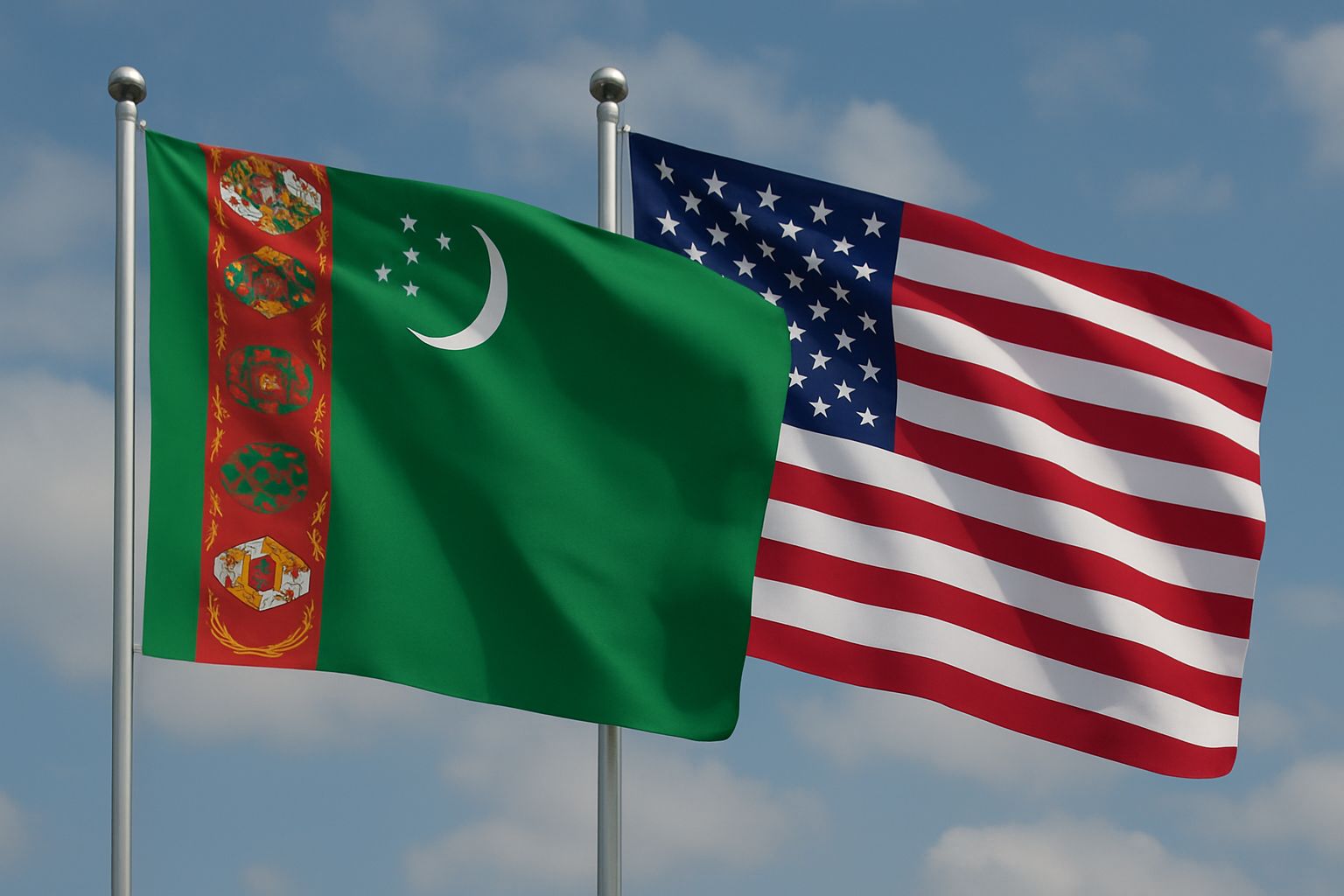BAKU, Azerbaijan, August 26. On August 20 in Ashgabat, Turkmenistan’s Foreign Minister Rashid Meredov met with U.S. Secretary of State Marco Rubio. The talks became an important step in strengthening bilateral ties and set the tone for further cooperation. On the same day, Washington hosted the eleventh round of annual political consultations between Turkmenistan and the US. These events demonstrated a new dynamic in Turkmenistan-U.S. relations, where the key areas remain the economy, security, and the development of the C5+1 partnership format.
The C5+1 format, which includes Kazakhstan, Kyrgyzstan, Tajikistan, Turkmenistan, Uzbekistan, and the United States, was established to strengthen dialogue between Central Asia and Washington. Since 2015, such meetings have become regular, but in the last two years, their pace has significantly accelerated. In 2024, the presidents of the Central Asian countries held their first joint summit with the U.S. president, which underscored the region’s growing importance in American foreign policy.
For Turkmenistan, participation in the C5+1 format is of particular importance. The country adheres to a policy of neutrality but is at the same time actively seeking new partnerships to strengthen its international position. The Meredov-Rubio meeting became another signal that Ashgabat intends to expand its spectrum of cooperation with Washington, while maintaining a balance in relations with neighbors and other major powers.
By the end of 2024, trade turnover between the U.S. and Turkmenistan reached $218.5 million, a 93.8 percent increase compared to 2023. Turkmenistan’s exports are mainly textiles, chemical products, and oil-and-gas equipment, while the U.S. supplies aviation technology, electronics, and agricultural machinery.
Washington has emphasized its interest in developing new areas of cooperation, primarily in energy and logistics. Turkmenistan, which holds the fourth-largest natural gas reserves in the world, is seen as an important player in ensuring regional energy stability. In 2024, the country produced 40.2 billion cubic meters of gas, of which about 20 billion cubic meters were exported.
Another promising direction is the digital economy. In 2024, Turkmenistan increased the number of registered IT companies by 15 percent within the framework of its “Concept for the Development of the Digital Economy of Turkmenistan for 2019-2025.” American companies have expressed interest in participating in the project to build the Trans-Caspian fiber-optic cable line, designed to connect Europe and Asia across the Caspian Sea.
Cooperation between Ashgabat and Washington goes beyond economics. Amid rising instability, the sides are discussing ways to strengthen regional security. Turkmenistan plays a special role as a country with a long border with Afghanistan. Support for infrastructure and trade development projects in border regions, analysts believe, reduces risks for the region while simultaneously strengthening Turkmenistan’s economy. According to figures presented at the Turkmen-Afghan business forum in 2024, mutual trade turnover between the two countries reached $46 million, more than doubling compared to the same period in 2023.
The U.S. is also focusing on environmental and water resource issues. In 2024, several joint programs were launched for sustainable water management in Central Asia. For Turkmenistan, where the rational use of the Amu Darya River is of strategic importance, such cooperation opens new opportunities. According to the U.S. Agency for International Development (USAID), these projects helped reduce water losses in irrigation systems by 10 percent in pilot regions.
Today’s dialogue between Turkmenistan and the U.S. shows that the partnership is reaching a new level. Whereas just a few years ago cooperation was limited to isolated projects, the two sides are now building long-term plans that take into account the interests of the entire Central Asian region.
Ashgabat’s balanced policy allows it to maintain good relations not only with Washington but also with Moscow, Beijing, and other important partners. Such flexibility strengthens Turkmenistan’s position as a neutral state and opens broad prospects for its economy and international politics.







